He’s your typical pinoy living in the streets of Manila, one among 94 million other residents of this country of ours. He drives his trusty jeepney everyday to support his family of 8. Still happily married all these years, he’s also a grandfather whose kids now have kids of their own… and they all live in the house he built with his own two hands.
But this story isn’t just about Mang Rogelio. Half a world away, Josh also makes a living driving people around the city. He’s a bus driver working the streets of London. Josh also comes from a large, close-knit, god-fearing family.
Two different people, two different lives in two different parts of the world… but having the same job and same family background. Yet for all the similarities their lives may have, these two people are about to realize just how different a hand fate has dealt them. By a simple accident of birth, one was fortunate enough to have been born in a first world country while the other lives here.
Josh has agreed to live a week in the shoes of Mang Rogelio and the BBC film crew was there to document all the tears, trials, and tribulations each person faced when their worlds collided. It’s not your typical reality-TV show where they take clueless idiots out of their comfort zone and wait for them to make fools of themselves. Josh and Mang Rogelio are genuinely nice guys who try to make the most of what life throws at them. But in the process of their own personal discoveries, they also allowed people a continent away a glimpse of life in Metro Manila as it is being lived by hundreds of thousands of Filipinos everyday. This is life as seen through the eyes of one who lived through it all… the hardships, the love, the camaraderie, and everything in between.
As Josh lands in Manila, “one of the most densely populated cities in the world”, as the program narrator describes, he gets a sobering look at life in Manila’s urban jungle. He meets his congenial host Mang Rogelio for the first time and gamely tours the 10′ x 10′ house Mang Rogelio built himself to house his family of 8. Filipinos will be happy to note that for a jeepney driver, Mang Rogelio has an impressive command of the King’s speech and has no problems conversing with the very British Josh without the aid of a translator.
He meets Mang Rogelio’s neighbor Elsie, who lives in a house half the size Mang Rogelio’s, yet still manages to fit all 13 of her children. She says she had her first child at age 14 and has had another one every year thereafter. She admits that she doesn’t know anything about family planning. Even now, she’s pregnant and is asking for Mang Rogelio’s help to take her to the hospital. Being the good, reliable neighbor that he is, Mang Rogelio opts to take the day off to help his sick neighbor. They reach the largest maternity clinic in the metro where things look even grimmer.
The facility has gone way beyond overloaded and has long past reached breaking point. Because of the lack of beds, 4 mothers have to share one bed among themselves. They talk to the resident doctor who explains the situation to the evidently disturbed Josh.
“In the Philippines, there is strong cultural opposition to contraception, from one of the biggest influence in the country, the Catholic church,” the doctor explains.
“Children are a gift from God,” he goes on, “they are a resource for you, source of help for you in your livelihood.” Which leads one to wonder if the proper way to treat “gifts from God” is to make them beg on the streets… or worse. Is this all children are to over-population deniers? Cheap, if not free, child labor?
Mang Rogelio, being more sensible and pragmatic than his neighbor Elsie, stopped at 3 kids. “I know it’s a sin against the church but rather than having a lot of kids that will die of hunger, I chose to go ahead with contraceptives,” his wife admits.
But Josh’s odyssey is far from over. He travels to Tondo, “one of the most densely populated areas on earth“, the program narrator says, with over 90,000 residents per sq.km. This is where hope is bleakest, living conditions in its most dire. Here, you have to do whatever it takes to get by.
He gets his first look at pag-pag… literally garbage that has been thrown away but scavenged and re-cooked for human consumption. The shock value is palpable. If this is the first time you’ve known about conditions like these, your mind will be sent reeling at the depths of depravity one would stoop in order to survive.
This is the depth of poverty Manila has to offer… poverty that will be experienced by a hundred more newborn babies each day. Who’s to say is to blame? Society? The government? Their parents? Sometimes, it’s easier to finger-point than to start working on practical and sustainable solutions.
Should one ask the question “Am I my brother’s keeper”? But we know that charity is rarely a practical long-term solution. The better choice would be to teach a man to fish. But how can one go out to “fish” when he already has 12 mouths to feed at home? It’s already a full-time job taking care of a dozen babies, so how can one even find the time to actually earn a living? If you can afford to hire a nanny or a private tutor for your kids then well and good, but if not, what then? Will the thousand or so churches in the country open their doors and provide day-care support for all their faithful followers, gratis? Will Pro-Life? When one preaches about the “dignity” of human life, one should consider the fate of the baby even after it’s out of the womb.
Clearly, if we treat only the symptoms and not the root cause, then we won’t get very far. We’ll just be wasting donor or taxpayer’s money handing dole-outs forever. We have to get to the root cause of the issue, which is unplanned pregnancy. No matter how much rhetoric people spout about how government corruption is the root of poverty or the lack of education or opportunities, the plain and simple truth is that even if we fix all that, you still can’t go and earn a living when you’ve already got your hands full with more babies than you can handle.
We need to assist and educate the next generation of Filipinos to become responsible parents, to straighten out their own lives before they even think of bringing new one into the world.
But the fact is, children living in the slums are exposed to sex at a very young age. With hundreds of thousands of people all living under such crammed conditions, privacy is a luxury few can afford. It would be impossible to not witness someone having sex behind a cardboard partition or flimsy blanket even before reaching puberty.
In a news article published in the Inquirer, it stated that the “latest data from the National Statistics Office showed that of 1.7 million babies born in 2004, almost 8 percent were born to mothers aged 15-19. Almost 30 percent of Filipino women become mothers before reaching their 21st birthday.”
Not yet finished with school and already a mother. How then can people still claim that proper sex education as taught in schools is obscene? Isn’t it more obscene to leave children ignorant about their bodies only to find themselves pregnant at age 15? It’s high time for the bishops to get down from their ivory towers and see how life really works in the areas most in need of family planning and sex education.
All the tools for this to work are already there in the RH Bill but there is still vocal opposition against it. Their rationales are off the mark, citing irrelevant, and often times inaccurate basis for their objections. But when it comes down to it, actual lives are at stake here. While anti-RH groups are rallying to save the lives of imaginary babies threatened by condom usage, meanwhile real babies are dying everyday brought about by poor living conditions and parents who are hardly equipped nor prepared for the challenges of parenthood.
The sad fate of our country’s Reproductive Health policies are already being talked about all over the world in different forms of media. The sick man of Asia, now with a dozen crying babies in tow… While people in other countries just shake their head in disbelief, we here are unfortunate enough to live it first-hand. What do foreigners visiting the Philippines see the most when they walk the streets of Manila? Child beggars. They swarm around any foreigner naive enough to hand out a few coins to a begging street urchin. Before you can blink, there are a dozen more of his friends with palms outstretched, hoping to receive the same. Dig a little deeper and you come across a darker side to the dangers faced by these street children. The Philippines is widely known in shadier circles to be one of the world’s capital in child prostitution and pedophilia. Not convinced?
Take a look at Google’s backroom for a few worrying statistics:
- Which country tops the most Google searches for PEDOPHILIA [click here]
- Which country tops the most Google searches for CHILD PROSTITUTION [click here]
Now, we can continue to ignore the reality of all these dangers faced by children born of parents who cannot provide a safe, nurturing home for them, continue blaming government corruption for the problem of poverty, or maybe… just maybe… we can help empower all these would-be parents to take control of their lives… postpone having children until they’ve earned enough to provide a good environment for their children to grow up in. Then maybe we can finally see a future where a thriving population becomes blessing instead of burden to this country.
——————
For more information on the program cited above, visit the BBC’s program profile at:

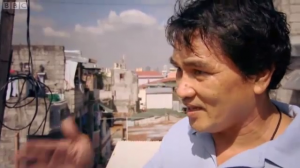
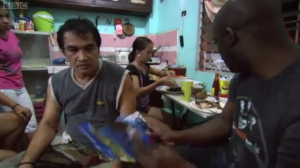

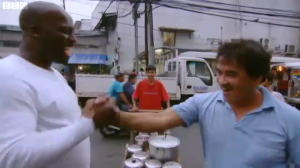
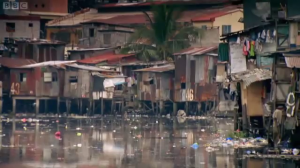
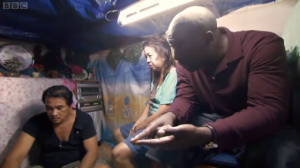
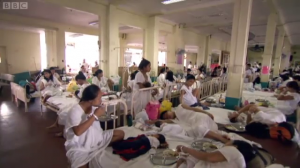
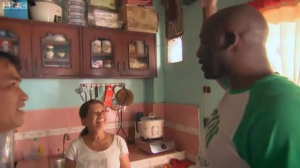
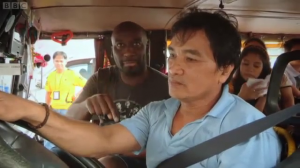
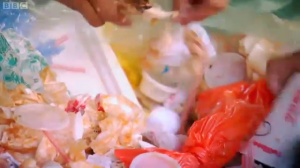

Thanks for the heads up. Good article. Nice segue…
When will this be aired, and what network was that again?
Thanks again.
"Clearly, if we treat only the symptoms and not the root cause, then we won’t get very far. We’ll just be wasting donor or taxpayer’s money handing dole-outs forever."
– I somehow theorize that's slyly where their actual business is. Neat argument, by the way. Now, if this still can't insert a bit of sense into their heads, and some real, unadulterated concern onto their hearts, you guessed who will! xD